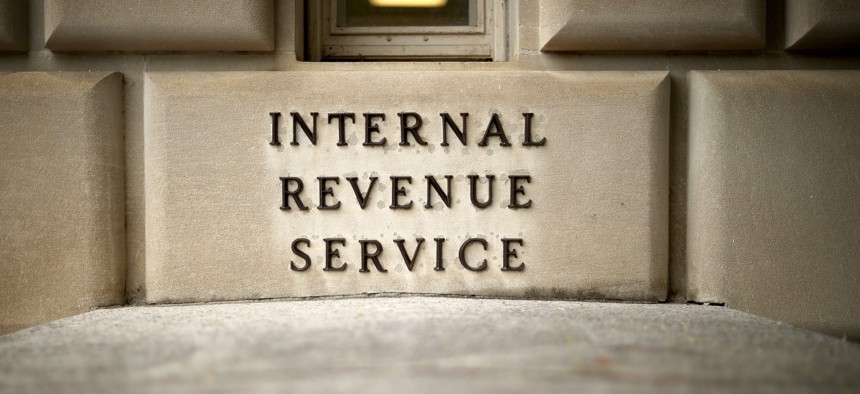
Chip Somodevilla/Getty Images
Former Tax Chiefs Urge the Senate to Quickly Confirm Biden's IRS Nominee
The new commissioner should be a part of setting priorities and making plans, say former tax agency heads.
Congress should quickly confirm President Joe Biden’s pick to lead the IRS, former commissioners say.
Last week, Biden announced plans to nominate Danny Werfel, previously an acting IRS commissioner, to lead the tax agency. Werfel also previously served as controller at the Office of Management and Budget and was a 2013 Federal 100 honoree.
Trump appointee Charles Rettig stepped down in October as his term was about to expire.
Werfel still needs to be confirmed by the Senate. Senate Majority Leader Chuck Schumer’s (D-N.Y.) office did not respond to request for comment about Werfel’s confirmation by publication time. The administration sent the Werfel nomination to the Senate on Monday.
If confirmed, Werfel will be coming into an agency flush with cash from the Inflation Reduction Act. The measure includes $80 billion in IRS funding to be spent over 10 years.
Agency leaders have long pointed to decreased funding over time as a roadblock to progress, and the new funding is meant to supplement normal appropriations with money for tax enforcement, taxpayer services and IT modernization.
Treasury Secretary Janet Yellen asked the IRS for an operational plan for the new funding in August. The former agency heads want the new commissioner to lead that effort.
"This is why it’s so important for Congress to act on a hearing and a confirmation of the new commissioner," said former IRS commissioner Charles Rossotti at a Monday event hosted by the Tax Policy Center.
Also in question is how funding will work out for the agency in the current political context with the House of Representatives headed for Republican control.
There is "nothing to keep appropriators from saying, 'well, let’s just cut their budget and spend the money somewhere else and they can take it out of the $80 billion,'" said John Koskinen, who was commissioner from 2013 to 2017. "If they do that very often they’ll undermine the ability of the IRS to improve service and undermine the ability to deal with closing some of the tax gap."
Many Republicans used the funding in the Inflation Reduction Act as a campaign talking point in the midterm elections – with campaign ads warning that the IRS plans to hire 87,000 new employees to conduct audits. An oversight report from the tax agency's internal watchdog noted in October that "after passage of the [Inflation Reduction Act] threats directed at the IRS and its employees increased."
The agency also faces outdated technology in need of modernization and urgent customer service issues. Phone answer rates are hovering around 10%, according to a recent blog post by the National Taxpayer Advocate Erin Collins.
The agency is also staring down a paper backlog of tax returns and correspondence that former commissioner Rettig promised lawmakers would be at a “healthy” level by the end of this year. As of Oct. 21, the IRS had a backlog of 8 million individual and business paper returns needing to be processed and around 6 million calendar year returns in suspension, according to Collins.







